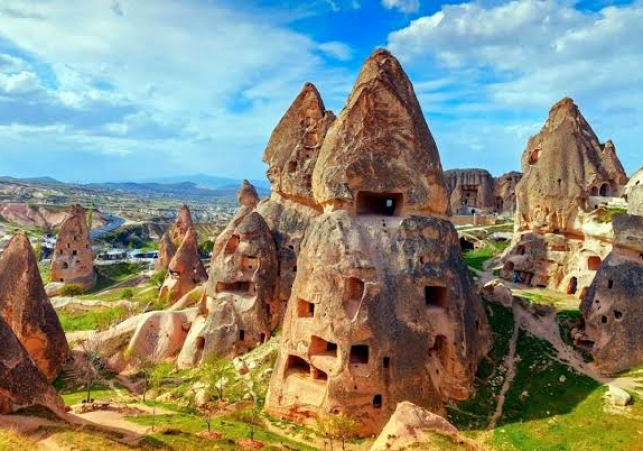

Recep Tayyip Erdogan, the Turkish president, said that the country would no longer be known as Turkey since the term was no longer the “best manner” to represent the people’s culture and beliefs.
TRT World News stated that Erdogan issued a declaration on Dec. 3 saying that the country would be renamed “Turkiye” instead of Turkey. On exporting products and brands, as well as activities and correspondence, the name Turkiye shall be used.
“The phase Turkiye best represents and expresses the Turkish nation’s culture, civilization, and values,” Erdogan said in a statement.
Fahrettin Altun, Turkish Communications Director, tweeted that the name change is “another crucial step” that would “strengthen the Turkish brand.”
“As a result of this, the word ‘Made in Turkiye’ began to be utilized in our export items instead of ‘Made in Turkey,” according to the statement. “As a result, utilising the ‘Turkiye’ branding, our products, which are the pride of our country in international trade, are marketed and shown to the rest of the world.”
“Our goal today is to convey the thousands of years of experience of our state and nation in every industry under the ‘Turkiye’ brand,” Erdogan added in the statement.
According to the outlet, the Turkish term for the country is “Turkiye.” After gaining independence from Western domination in 1923, this name was adopted. Several names have been proposed, but Turkey has been widely embraced.
“Turkey had decided to alter the name of their country from Turkey to Turkiye to avoid misunderstanding with the name of the turkey bird of the same name,” a Turkish social media influencer wrote on Twitter.
On December 13, TRT World backed up and revealed this rationale. According to the publication, if you type “turkey” into the Google search engine, you’ll get a slew of results, including the turkey bird, which is typically served at Thanksgiving dinners.
Turkiye isn’t the first country to undergo a rebranding process. In 2019, the Netherlands stated that it will no longer use the term “Holland,” and Macedonia voted to change its name to “Republic of North Macedonia.”
Call it a rebranding, national pride, whatever you want to call it, but don’t call it “Turkey” any longer.
The statement, like most of President Erdoan’s policies in the last six months, was met with a sharply polarised reception. The government’s endeavour to portray the “culture, civilisation, and values of the Turkish country in the finest way” has been commended by supporters. Others have pointed to the country’s homonym the huge bird as a rationale for the change, claiming that the popular name does not reflect the respect that a country deserves. On the other hand, Erdoan’s critics have slammed the decision as a semantic diversion from the country’s economic woes.
Turkey, like many other countries founded about the same time and in the same region, has continually revised its public face in order to be more acceptable, more appealing, to the anglicised diplomatic community since its foundation in 1923. The name change is a symbolic break from the previous efforts.
Of course, Turkey is not the first country to change its name in order to participate in world affairs on its own terms. This is frequently done to distance countries from imperialism, racism, and orientalism. Mumbai, India, is a poignant example of this, having changed its name from Bombay in the 1990s to distance itself from its colonial designation.
This move appears to be a no-brainer in the face of complex diplomatic disputes and international crises. And how countries react to the name change, notably in Europe and North America, will reveal their desire to engage in modern diplomacy that welcomes accurate and diversified self-representation. It’s possible that it will also inspire other countries.